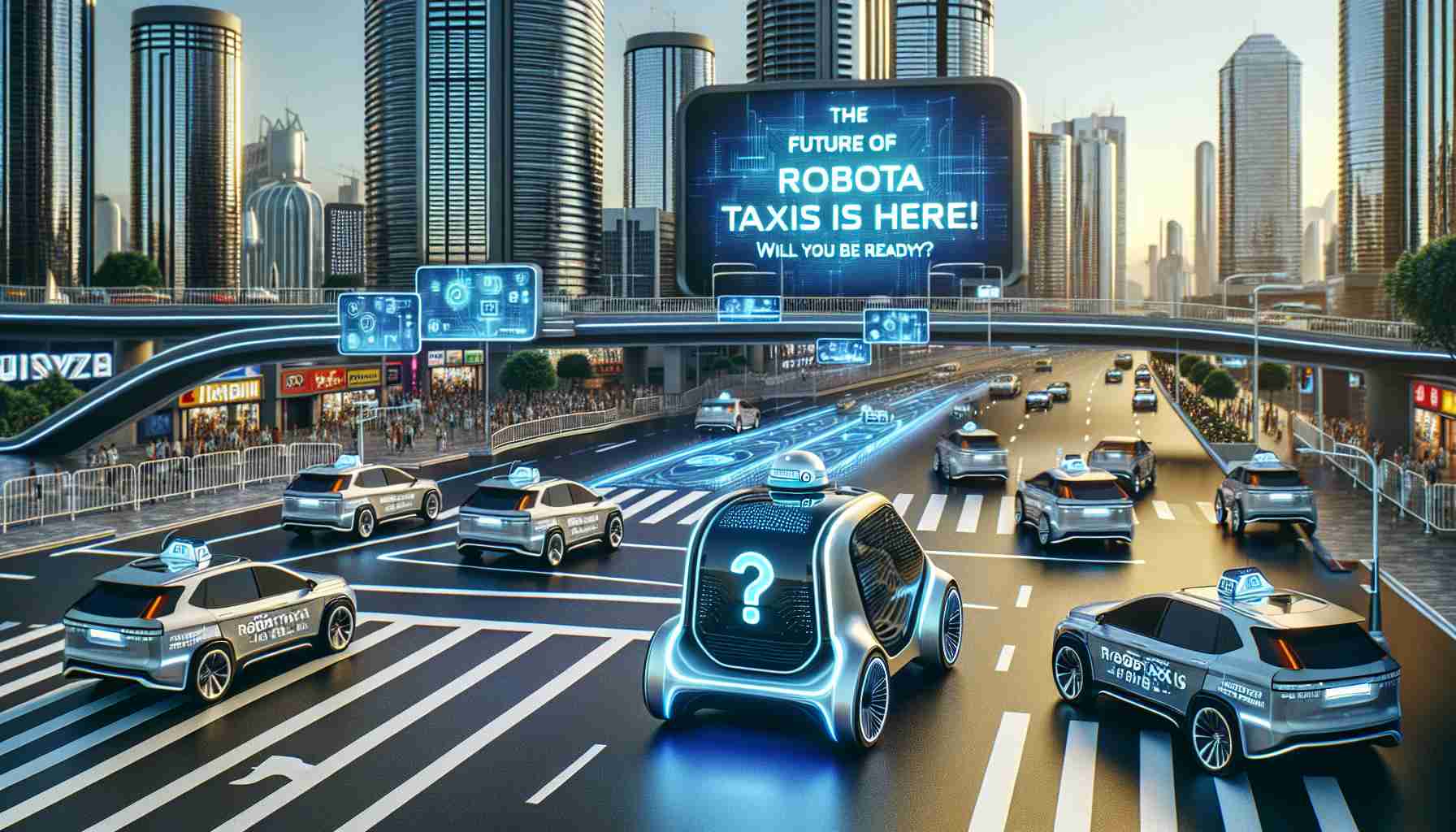The Race for Autonomous Transportation
As the competition for the robotaxi market heats up, a handful of companies are positioning themselves as front-runners. The future of urban mobility may be significantly influenced by these key players.
The race is driven by advances in artificial intelligence and automation technologies, which are reshaping how we think about transportation. Several companies are testing their self-driving vehicles in various cities, aiming to provide safe and efficient rides to the public. The significance of this competition cannot be overstated, as robotaxis promise to reduce traffic congestion and provide more environmentally friendly options compared to traditional vehicles.
Among the leading contenders, some companies have already made substantial breakthroughs in their autonomous systems. These innovations focus on enhancing user safety, optimizing navigation, and improving the overall travel experience. The race is not just about technology; it also involves strategic partnerships and regulatory approvals that can make or break a company’s success in launching widely adopted robotaxi services.
With the increasing demand for sustainable and innovative transportation options, the companies that can navigate the technical challenges and regulatory landscape effectively are poised to lead the market. As we look to the future, the robotaxi race will not only change how we move but will also redefine our cities and their infrastructures. Expect to see exciting developments in this space in the coming years.
Who Will Reign Supreme in the Future of Autonomous Transportation?
Introduction to the Robotaxi Revolution
The landscape of urban mobility is undergoing a radical transformation, fueled by advancements in artificial intelligence (AI) and automation technologies. As companies race to develop robotaxis, they are not merely reimagining transportation but also setting the stage for a redefined urban environment. This article explores the latest trends, technologies, and insights into the robotaxi market, highlighting key players, challenges, and future predictions.
Key Players in the Robotaxi Market
The race for dominance in the robotaxi market includes several heavyweights, each with unique strengths:
1. Waymo: A subsidiary of Alphabet Inc., Waymo is leading in autonomous vehicle technology. With a robust testing strategy and partnerships with ride-hailing services, Waymo aims to launch a fully operational robotaxi service in urban areas.
2. Cruise: Owned by General Motors, Cruise is scaling its operations rapidly in cities like San Francisco, focusing on safety and user experience. Their electric fleet is designed for dense urban environments, complementing existing public transit.
3. Aurora: Partnering with major automotive manufacturers, Aurora is working on a comprehensive self-driving system that supports various vehicle types, from passenger cars to delivery vans.
4. Baidu: The Chinese tech giant is making strides in the robotaxi space with its Apollo Go service, which is gaining traction across several cities in China, supported by government initiatives promoting smart transport.
Innovations Driving Robotaxis
Artificial Intelligence
AI is at the heart of robotaxi technology. Machine learning algorithms allow vehicles to process vast amounts of data in real-time, enabling them to navigate complex urban environments safely. Innovations include enhanced sensory perception, obstacle detection, and route optimization.
Electric and Sustainable Fleet
As environmental concerns grow, many robotaxi developers are focusing on electric vehicles (EVs). This shift not only aligns with sustainability goals but also reduces operational costs related to fuel and maintenance.
Potential Use Cases
– Urban commuting: Robotaxis can relieve traffic congestion by providing efficient on-demand transportation.
– Last-mile delivery: Companies can use autonomous vehicles for delivering goods, enhancing logistics.
– Accessibility: Robotaxi services can offer transportation solutions tailored for the elderly and disabled, promoting inclusivity.
Challenges Ahead
Regulatory Hurdles
Achieving widespread acceptance of robotaxis depends on regulatory frameworks adapting to new technologies. Companies must engage with policymakers to ensure safety standards are met.
Public Perception
Customer trust in autonomous transport is still developing. Ongoing education and transparent communication about safety measures and technology are vital to gain public confidence.
Market Insights and Trends
The robotaxi market is projected to grow substantially, with estimates suggesting it could be worth $1 trillion by 2030. Significant investments by tech and automotive companies indicate strong confidence in the viability and necessity of autonomous transport solutions.
Future Predictions
In the coming years, expect to see:
– Continued advancements in AI that enhance safety and efficiency.
– More cities experimenting with pilot programs for robotaxi services.
– Potential collaborations between tech firms and public transport agencies to create integrated mobility solutions.
Conclusion
The race for robotaxis embodies not just technological innovation but also a fundamental shift in urban mobility paradigms. The companies that adeptly navigate the challenges of technology, regulations, and public trust are likely to emerge as leaders in the future landscape of transportation.
For more insights on the advancements in autonomous vehicles, visit Automotive Innovations.








